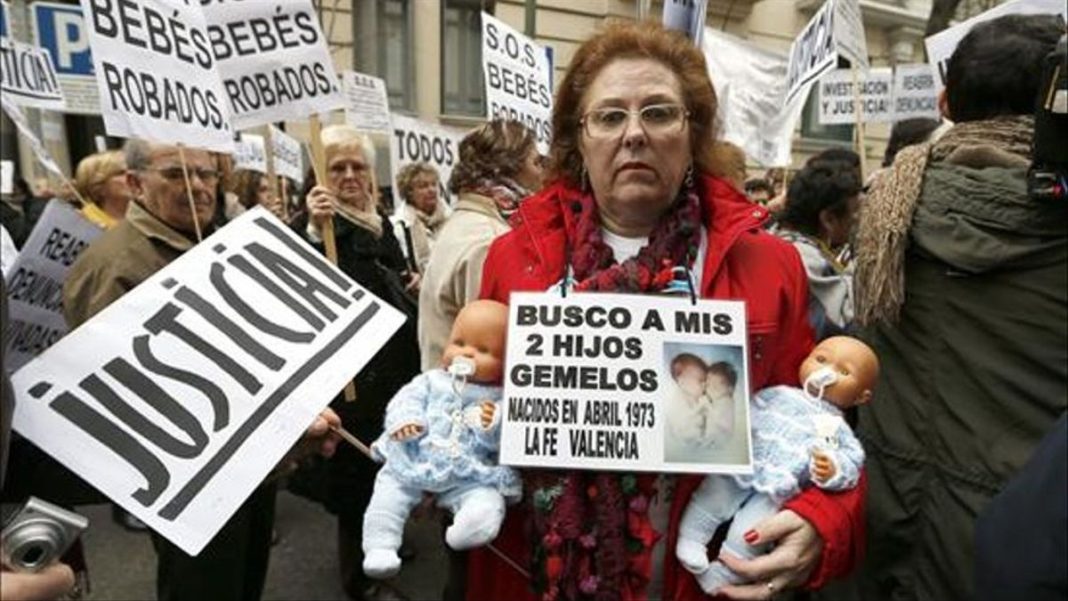The organisation CeAqua, the body that coordinates complaints against crimes committed by the Franco state, says that it regrets the Government’s forgetfulness regarding their promise to speed up investigations.
On two occasions, November 2018 and June 2020, the Congress of Deputies has overwhelmingly supported the need to pass a law on the issue of stolen babies in Spain, practices that, as far as it has been possible to prove, began during the post-war period, continued during the Franco regime and even beyond that into the 1990s.
Four years after the government’s promise, the new legislation, aimed at seeking reparation for the victims and speeding up the investigations, is still to be formally discussed.
This is claimed by Soledad Luque, spokesperson for CeAqua, in the area of ’stolen babies’ and president of the association ‘All Stolen Children are also my Children’. This association prepared the text that was signed by all the parliamentary groups, except for PP and Vox, in June 2020, although the Partido Popular did show their support for the initiative. Since then, however, nothing has been heard of the matter.
Given the paralysis, CeAqua says that it is not at all satisfied and, earlier this year, the group began a round of meetings with the Ministries of Justice, Presidency and Social Rights, to find out the intentions of the Prime Minister, Pedro Sánchez, on this matter, without obtaining any concrete response beyond the empty assurances of all those responsible. The Minister of Justice, Pilar Llop , told the press that the matter is very sensitive “and are assessing how to expedite it”, but she would not give any specific deadlines.
Outlaw memory
Although the Democratic Memory Law – equally paralyzed by the lack of consensus – contains a section on stolen children, what was approved in Congress is the drafting of a specific law for the victims. “It needs its own law,” says Luque, who explains that the CeAqua text was made available to all political groups in 2017, and after being registered in Congress in September 2018, politicians unanimously approved taking it into consideration on November 20, this year.
The problem is that the government fell without the proposal being moved forward and, after two subsequent elections, the text was registered again in Congress in February 2020.
The pandemic did not prevent CeAqua from continuing it’s discussions with all the groups “except with the extreme right”, according to Luque, and they even made amendments to the initial text before submitting it again for consideration on June 23 of that year, when it went ahead again with broad consensus.
Objective of the new law
The rule wants to create a police unit and a specialised prosecutor’s office to investigate the conspiracy of stolen babies, in addition to making it easier for victims to access documentation that may be of interest to them, either from the Administration or from private files. It also includes the creation of a state national database of those affected and a unique free DNA bank with “all the relevant information” in relation to all these cases.
As for the reparation measures, those recognized as victims want the law to recognise their right to free medical, legal and psychological assistance, as well as to be told of their true identity. The text also includes the possibility of granting extraordinary compensation in favour of those who are recognised as victims.
In the last ten years, the investigations brought before a judge number a total of 522, although it is very difficult in most cases for them to reach a conclusion. The difficulty lies in the problems of collecting evidence due to the passage of time, the death of many of those involved and the destruction of clinical files due to the disappearance of many of the clinics where these children were born.





